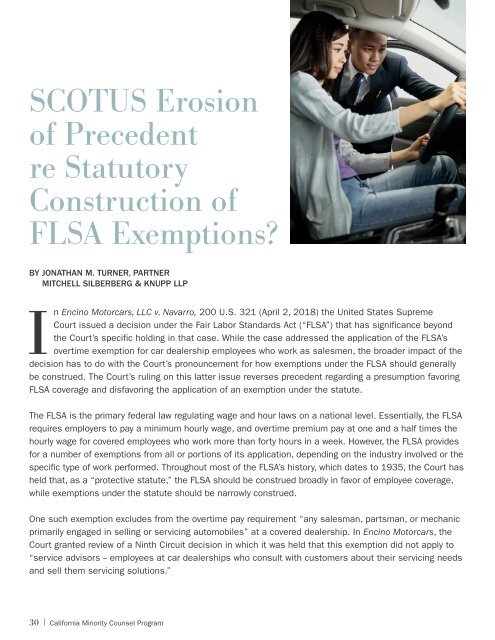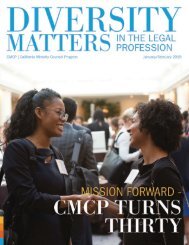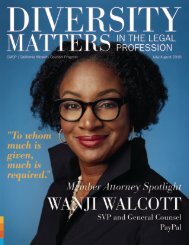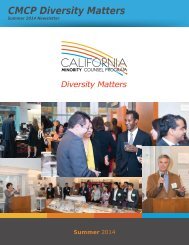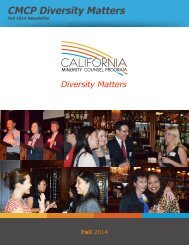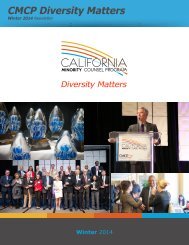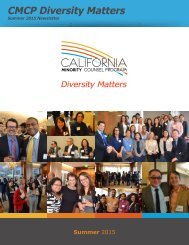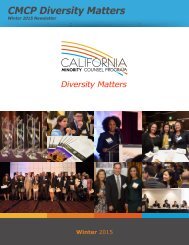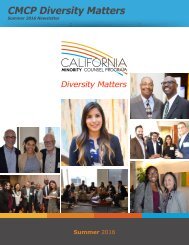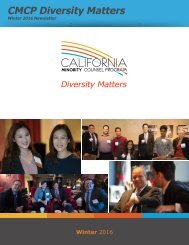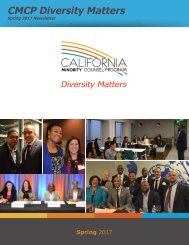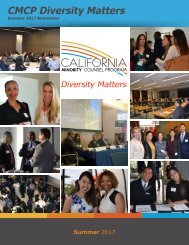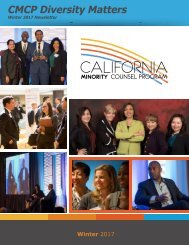CMCP Diversity Matters - May/June 2018
California Minority Counsel Program Diversity Matters - May/June 2018
California Minority Counsel Program Diversity Matters - May/June 2018
You also want an ePaper? Increase the reach of your titles
YUMPU automatically turns print PDFs into web optimized ePapers that Google loves.
SCOTUS Erosion<br />
of Precedent<br />
re Statutory<br />
Construction of<br />
FLSA Exemptions?<br />
BY JONATHAN M. TURNER, PARTNER<br />
MITCHELL SILBERBERG & KNUPP LLP<br />
In Encino Motorcars, LLC v. Navarro, 200 U.S. 321 (April 2, <strong>2018</strong>) the United States Supreme<br />
Court issued a decision under the Fair Labor Standards Act (“FLSA”) that has significance beyond<br />
the Court’s specific holding in that case. While the case addressed the application of the FLSA’s<br />
overtime exemption for car dealership employees who work as salesmen, the broader impact of the<br />
decision has to do with the Court’s pronouncement for how exemptions under the FLSA should generally<br />
be construed. The Court’s ruling on this latter issue reverses precedent regarding a presumption favoring<br />
FLSA coverage and disfavoring the application of an exemption under the statute.<br />
The FLSA is the primary federal law regulating wage and hour laws on a national level. Essentially, the FLSA<br />
requires employers to pay a minimum hourly wage, and overtime premium pay at one and a half times the<br />
hourly wage for covered employees who work more than forty hours in a week. However, the FLSA provides<br />
for a number of exemptions from all or portions of its application, depending on the industry involved or the<br />
specific type of work performed. Throughout most of the FLSA’s history, which dates to 1935, the Court has<br />
held that, as a “protective statute,” the FLSA should be construed broadly in favor of employee coverage,<br />
while exemptions under the statute should be narrowly construed.<br />
One such exemption excludes from the overtime pay requirement “any salesman, partsman, or mechanic<br />
primarily engaged in selling or servicing automobiles” at a covered dealership. In Encino Motorcars, the<br />
Court granted review of a Ninth Circuit decision in which it was held that this exemption did not apply to<br />
“service advisors -- employees at car dealerships who consult with customers about their servicing needs<br />
and sell them servicing solutions.”<br />
30 | California Minority Counsel Program


